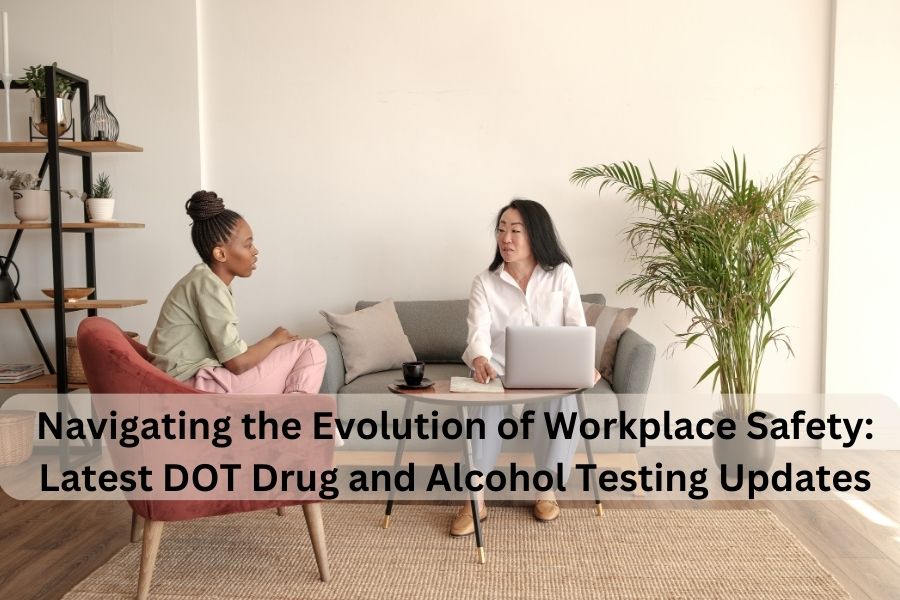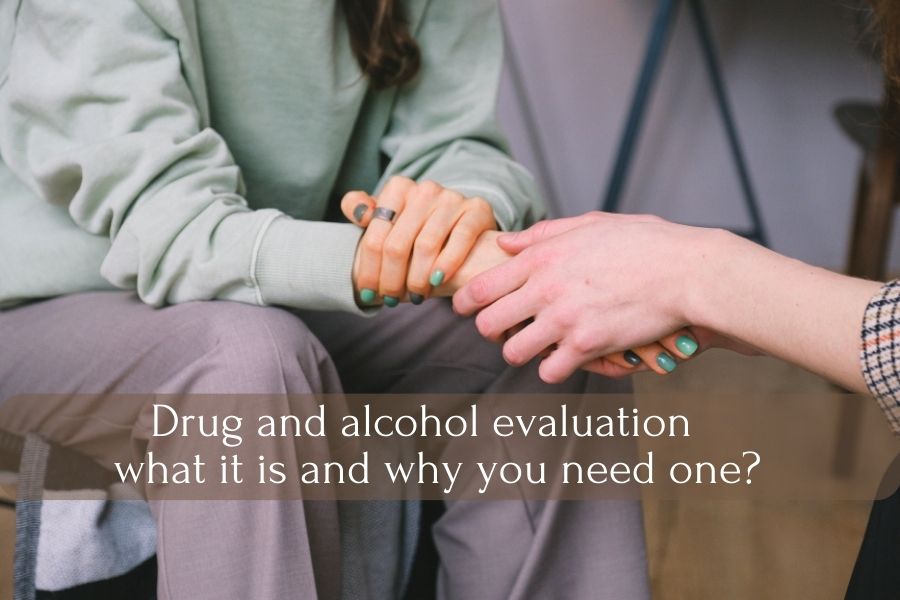What is an alcohol and drug evaluation by court order?
When someone is accused of a crime, the court will often order a clinical drug and alcohol evaluation in order to determine if the person’s use of substances played a role in the crime. This evaluation is conducted by a professional who will ask the person questions about their drug and alcohol use, as well as their criminal history. The evaluator will then make a recommendation to the court about whether or not the person should be required to receive treatment for their substance abuse.
What is involved in a drug and alcohol evaluation?
A clinical drug and alcohol evaluation is a professional assessment of an individual’s use of alcohol and other drugs. The evaluation is conducted by a qualified clinician, who will ask the individual a series of questions about their drug and alcohol use, and any related problems. The evaluation may also include a physical examination, and laboratory tests. The purpose of the evaluation is to determine if the individual has a problem with alcohol or other drugs, and to make recommendations for treatment.
When do you go for a drug and alcohol evaluation?
A clinical drug and alcohol evaluation is a professional assessment of someone’s use of substances. This type of evaluation is often used to help determine if someone has a substance use disorder and, if so, what level of care they need.
There are many reasons why someone might go for a clinical drug and alcohol evaluation. For example, someone might be court-ordered to get an evaluation as part of their sentencing for a DUI. Or, an employer might require an employee to get an evaluation after a positive drug test.
The process of a clinical alcohol and drug evaluation near me usually includes an interview and a review of medical and psychological records. The evaluation can be used to make a diagnosis of a substance use disorder and to recommend a course of treatment.
Where do you get a drug and alcohol evaluation?
A clinical drug and alcohol evaluation is a type of assessment that is typically conducted by a licensed mental health professional, such as a counselor, social worker, or psychologist. This type of evaluation is usually requested by a court, employer, or licensing body as a way to determine if an individual has a substance abuse problem and, if so, what level of care is necessary.
The evaluation usually consists of a face-to-face interview during which the clinician will ask questions about the individual’s drug and alcohol use, as well as their family history, mental health history, and overall functioning. The clinician will also likely administer some type of standardized test, such as the Substance Abuse Subtle Screening Inventory (SASSI), to help gather additional information.
Based on the information gathered during the evaluation, the clinician will be able to provide a diagnosis (if one is warranted) and make recommendations for treatment. Treatment recommendations may range from self-help or outpatient counseling to inpatient rehabilitation.
If you are told that you need to undergo a clinical drug and alcohol evaluation, it is important to find a qualified professional who can provide an accurate assessment. Be sure to ask about the clinician’s experience and credentials, as well as what type of evaluation methods they use.
Drug Testing at a Drug and Alcohol Evaluation
If you have been convicted of a drug or alcohol-related offense, you may be required to complete a drug and alcohol evaluation as part of your sentence. The purpose of this evaluation is to determine your level of substance abuse and whether you would benefit from treatment.
During the evaluation, you will be asked about your drug and alcohol use, including how often you use, the types of substances you use, and whether you have ever tried to quit using. You will also be asked about your personal and family history of substance abuse, as well as any previous treatment you have received. The evaluator will also want to know about any other mental health or medical conditions you have.
Based on the information you provide, the evaluator will make a recommendation about treatment, if necessary. If the evaluator believes you would benefit from treatment, he or she will refer you to a treatment program. If you are not referred to treatment, you may be required to attend regular meetings with a probation officer and/or participate in a drug education program.
It is important to be honest with the evaluator, as the information you provide will be used to make decisions about your treatment. Lying about your substance abuse will only delay getting the help you need.
How to Pass a Drug and Alcohol Evaluation Test
If you are facing a alcohol and drug evaluation marietta test, also known as a substance abuse assessment, it is important to be prepared. This type of test is usually given to those who are seeking treatment for substance abuse, as well as those who are on probation or in other court-ordered programs. The evaluation will assess your use of drugs and alcohol, as well as any other mental health issues you may have. Here are some tips on how to pass a drug and alcohol evaluation test:

1. Be Honest
This may seem like an obvious tip, but it is important to be completely honest when taking a substance abuse assessment. The evaluation is meant to help you get the treatment you need, and lying about your drug or alcohol use will only hinder that process. Be honest about your use, including how often you use, how much you use, and what type of substances you use.
2. Be Open to Feedback
The results of your evaluation may be surprising, but it is important to be open to the feedback you receive. The evaluation is meant to give you an accurate picture of your drug and alcohol use, and it is important to take that information into account when making decisions about treatment. If you are not open to the feedback you receive, you may miss out on important information that could help you in your recovery.
3. Be Willing to Change
If the evaluation shows that you have a problem with drugs or alcohol, it is important to be willing to change your behavior. If you are not willing to change, treatment will not be successful. Treatment is meant to help you change your behavior, and if you are not willing to do that, it is unlikely to be effective.
4. Seek Professional Help
If you are struggling with drug or alcohol addiction, seek professional help. There are many treatment options available, and a professional can help you find the right one for you. If you are not sure where to start, consider talking to your doctor or a mental health professional.
5. Follow Through with Treatment
If you decide to enter treatment, it is important to follow through with it. Treatment is not always easy, but it is important to stick
What to Expect at a Drug and Alcohol Evaluation
If you’ve been ordered to complete a drug and alcohol evaluation, you may be feeling a bit nervous about what to expect. Will the evaluator ask personal questions? Will they judge me? Will I have to take a drug test?
Here’s a rundown of what you can expect at a drug and alcohol evaluation:
1. The evaluator will ask you about your drinking and drug use history.
You’ll be asked about how much and how often you drink or use drugs, as well as any recent changes in your use. The evaluator will also want to know if you’ve ever experienced any negative consequences as a result of your drinking or drug use, such as losing a job or getting into legal trouble.
2. The evaluator will ask you about your family history of alcohol and drug use.
The evaluator will want to know if anyone in your family has a history of alcohol or drug abuse, as this can be a risk factor for developing problems with substance abuse yourself.
3. The evaluator will ask you about your mental and physical health.
Mental and physical health problems can sometimes be underlying causes of substance abuse, so the evaluator will want to know if you have any mental or physical health conditions that might be contributing to your problem.
4. The evaluator will ask you about your current life situation.
The evaluator will want to know about your work, your home life, and any other stressors in your life that might be contributing to your drinking or drug use.
5. The evaluator will ask you about your goals for treatment.
The evaluator will want to know what your goals are for treatment and what you hope to achieve by completing a Alcohol and Drug Evaluation Atlanta.
6. The evaluator will give you a physical examination.
The evaluator will want to make sure that you don’t have any physical health problems that could be contributing to your drinking or drug use. The evaluator may also order a drug test to check for the presence of drugs in your system.
How to Certification as Alcohol and Drug Evaluation Specialist
Certification as an alcohol and drug evaluation specialist can be obtained through a number of different organizations. The most common certifying bodies are the American Addiction Centers (AAC), the National Association of Alcoholism and Drug Abuse Counselors (NAADAC), and the National Certification Commission for Addiction Professionals (NCCAP).
To become certified through AAC, candidates must have a master’s degree in addiction counseling or a related field, as well as two years of professional experience. Candidates must also pass an exam.
To become certified through NAADAC, candidates must have a bachelor’s degree in addiction counseling or a related field, as well as two years of professional experience. Candidates must also pass an exam.
To become certified through NCCAP, candidates must have a master’s degree in addiction counseling or a related field, as well as two years of professional experience. Candidates must also pass an exam.
Certification as an alcohol and drug evaluation near me specialist can be a valuable asset for those working in the field of addiction counseling. Certification can show potential employers that the candidate has the necessary skills and knowledge to perform the job effectively. Certification can also provide the holder with a sense of accomplishment and professional satisfaction.
How to Prepare for Drug and Alcohol Evaluation for Court
It is no secret that many people in the United States struggle with addiction. In fact, according to the National Institute on Drug Abuse, roughly 21.5 million Americans suffer from a substance use disorder.
While addiction is a serious problem, it is important to remember that treatment and recovery are possible. If you or someone you know is struggling with addiction, there is help available.
One way to get help is to go through a drug and alcohol evaluation for court. This evaluation can help to determine what level of care you need and what kind of treatment would be most effective for you.
If you are facing drug and alcohol charges, or if you have been ordered by the court to get an evaluation, it is important to be prepared. Here are five tips to help you prepare for your drug and alcohol evaluation for court:
1. Know What to Expect
The first step in preparing for your drug and alcohol evaluation is to know what to expect. The evaluation process will vary depending on the state you are in and the specific court requirements, but there are some general things you can expect.
Most evaluations will include a written assessment, an interview, and a review of your medical and criminal history. You will likely be asked about your drug and alcohol use, your family history of addiction, and your mental and physical health.
It is important to be honest during your evaluation. The evaluation is not meant to be a punishment, but rather a way to get you the help you need. Lying or withholding information will only make the process more difficult and could result in you not getting the help you need.
2. Gather the Required Documentation
In order to complete your drug and alcohol evaluation, you will need to provide certain documentation. This documentation will vary depending on the state you are in and the specific requirements of the court, but it is important to be prepared.
Some of the documentation you may be required to provide includes:
-A copy of the court order or referral for the evaluation
-A list of all medications you are currently taking
-A list of all medical conditions you have been diagnosed with…
For more Detailed Information Related to Alcohol and Drug Assessment Please visit us or make an Appointment now.




















